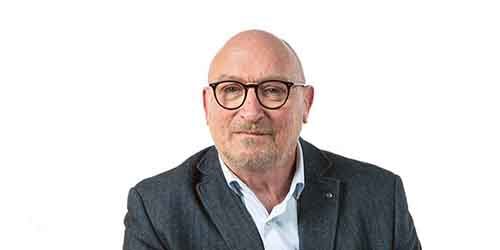Member of Parliament, Peter van Haasen (PVV), argued in the committee debate on the processing of the slavery past that there is a “revenue model for a subsidy-driven victim industry of institutions, interest groups and activists that run on government money and keep themselves talking with commemorations, advisory committees, workshops and awareness subsidies.”

His argument:
Since former Prime Minister Rutte’s apology – “we put a comma, not a period” – a revenue model has been established that nobody truly supports. Organizations focusing on the slavery past now receive enormous sums, often tens of millions of euros. However, the so-called slavery fund doesn’t represent the beginning of recovery; rather, it perpetuates a subsidy industry that mainly sustains itself.
Let me begin by quoting from the PVV’s 2023 election program:
“The PVV loves the Netherlands. We are proud of our culture, identity, and traditions, which we must preserve rather than erase. We will put an end to the left-wing vilification of historical figures. The apologies for the slavery past and colonial military actions, as issued by the King, will be withdrawn. And Black Pete will remain.”
These words resonated with millions of Dutch citizens. They reflect a healthy national sentiment: taking pride in who we are and stopping the endless apologies for a past for which no one alive today bears responsibility.
This message helped us become the largest party in the Netherlands. Therefore, if any party can speak honestly about historical awareness and present-day realities, it is the PVV. We refuse to be held hostage by guilt or substance addiction. We choose truth, fiscal responsibility, and the Netherlands.
The Subsidy Industry and False Emancipation
The current system benefits intermediaries and self-appointed representatives who prioritize their own interests. Consider the slavery museum: a director has been appointed for a four-year term, renewable for another four years, yet construction hasn’t even begun, and the museum won’t open until around 2030. By then, his term will have expired – and after a possible extension, he’ll likely be retired.
Meanwhile, millions in public funds are being spent on salaries, planning, and bureaucratic layers. This isn’t about remembrance; it’s about financial gain.
Suriname, once a Dutch colony, has received billions from the Netherlands since its independence, along with debt forgiveness. Hundreds of millions more continue to flow annually to the Caribbean parts of the Kingdom. Yet instead of fostering true emancipation and self-reliance, dependency persists. This isn’t justice – it’s the perpetuation of a handout culture.
Selective Outrage, Ignored History
The current debate promotes a one-sided narrative. While the Dutch role in the transatlantic slave trade is emphasized, few mention that slaves were purchased from African kings, warlords, and tribes who captured and sold their own people. This inconvenient truth is systematically ignored.
Even more striking is the silence surrounding the Islamic slave trade, which transported millions of Africans across the Sahara, the Red Sea, and the Indian Ocean. Estimates suggest between 10 and 17 million were enslaved. Men were often castrated to prevent reproduction; women were forced into sexual servitude. Meanwhile, Barbary pirates enslaved over a million Europeans.
Where are the apologies for these atrocities? The commemorations? The museums? The truth is suppressed because it doesn’t fit the preferred narrative.
Ending the Victim Industry
What we’re debating today isn’t genuine historical reflection – it’s the maintenance of a subsidy-driven victim industry. A network of institutions, activists, and consultants thrives on government funding, perpetuating itself through memorials, advisory boards, and “awareness” grants.
The PVV says: Enough.
- No more profiting from history.
- No more self-enrichment disguised as “reckoning.”
- No more subsidies for meaningless monuments or bureaucratic self-importance.
Instead, we demand: responsible policies, historical honesty, and pride in our nation.”
Peter van Haasen (PVV)

 Saba News News and Information from Saba Island, Dutch Caribbean
Saba News News and Information from Saba Island, Dutch Caribbean
